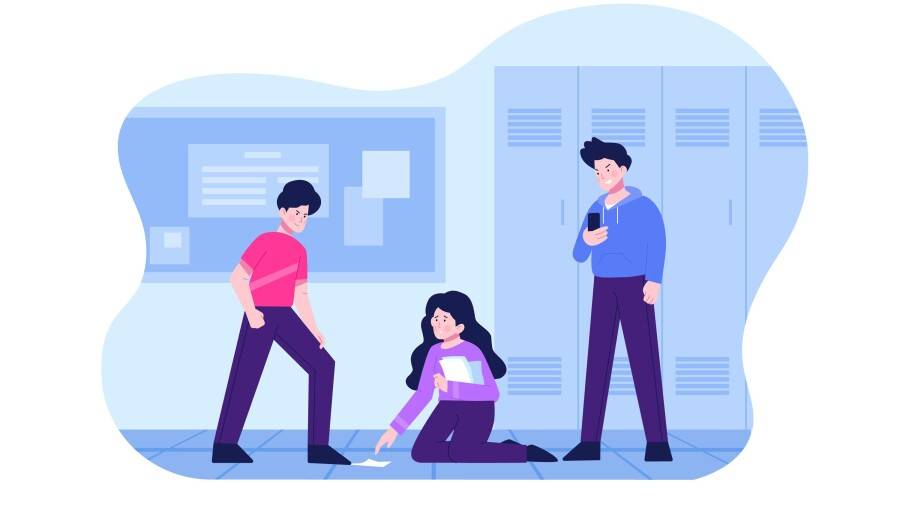
Bullying is repeated aggression towards one member of a collective. The victim may be bullied by one or more people. The others often take it for granted and do nothing to stop the bullying.
Bullying is not a lack of popularity. There are times when a child is not well liked in a group, but is not hurt or humiliated. While not everyone needs popularity, everyone needs safety.
Bullying can be physical or psychological. They may be beaten, locked up in class, have their belongings taken away and damaged. Or they may be teased, called names, ignored, not allowed to sit at the same desk with them. According to UNESCO, physical bullying is more common among boys and psychological bullying among girls.
Victims of bullying feel threatened all the time. Even if they are not being bullied right now, they feel it could start any minute. In the book Preventing Bullying, victims of bullying describe their experience as follows: "It feels wrong. You isolate yourself from your peers and don't even try to make friends. You shut yourself off and get angry all the time.
Childhood bullying can also have long-lasting consequences. Survivors suffer from low self-esteem, self-harm, depression and addictions of all kinds. If a person is initially predisposed to mental problems, bullying increases the likelihood of developing them.
There are consequences of bullying for both the aggressor and the observers, and of course for the victim. Survivors of bullying usually face the following problems
The consequences of bullying can and should be dealt with. You can look for the causes of your problems and restore a healthy sense of self-worth. The consequences of bullying can be successfully dealt with in therapy. If you have been a victim, witness or perpetrator of bullying as a child and feel the negative effects of this experience, you should seek help from a psychologist or psychotherapist.